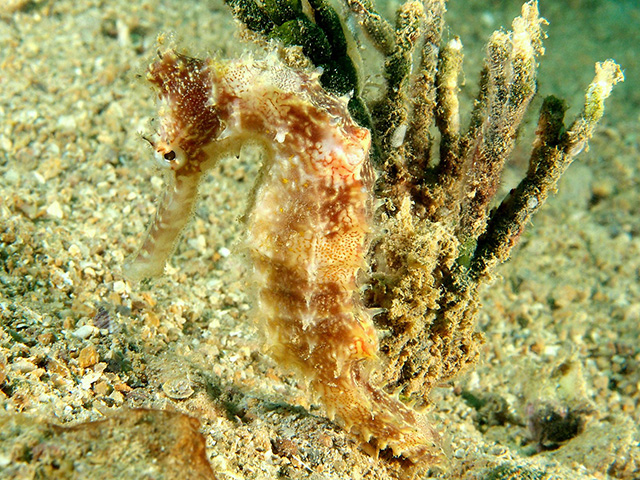| Syngnathidae (Pipefishes and seahorses), subfamily: Syngnathinae |
| 9.76 cm SL (female) |
|
demersal; marine; depth range 6 - 20 m, non-migratory |
| Western Pacific: New Caledonia. |
|
Dorsal soft rays (total): 17-17. This large spiny seahorse is distinguished by the having 17 dorsal fin rays; 17-18 pectoral fin rays; 11 trunk rings; 35-37 tail rings; subdorsal spines 3/0,1,0; moderately large nose spine, height about equal to pupil diameter; double spine above eyes which are moderately long, shorter than eye diameter; single lateral head spine; raised coronet with 4 large spines; restricted gill openings, not close together near the neck ridge; shoulder rings not confluent over neck ridge, not forming continuous collar; the upper shoulder ring spine opposite 11th pectoral fin ray; trunk and tail ridges with many large, curved spines; snout length approximately 57% of head length (Ref. 75989). |
| Found in seagrass beds at depths of more than 6 meters (Ref. 75989). |
|
Not Evaluated (N.E.) Ref. (130435)
|
| harmless |
Source and more info: www.fishbase.org. For personal, classroom, and other internal use only. Not for publication.

